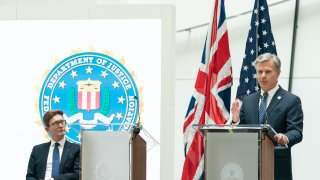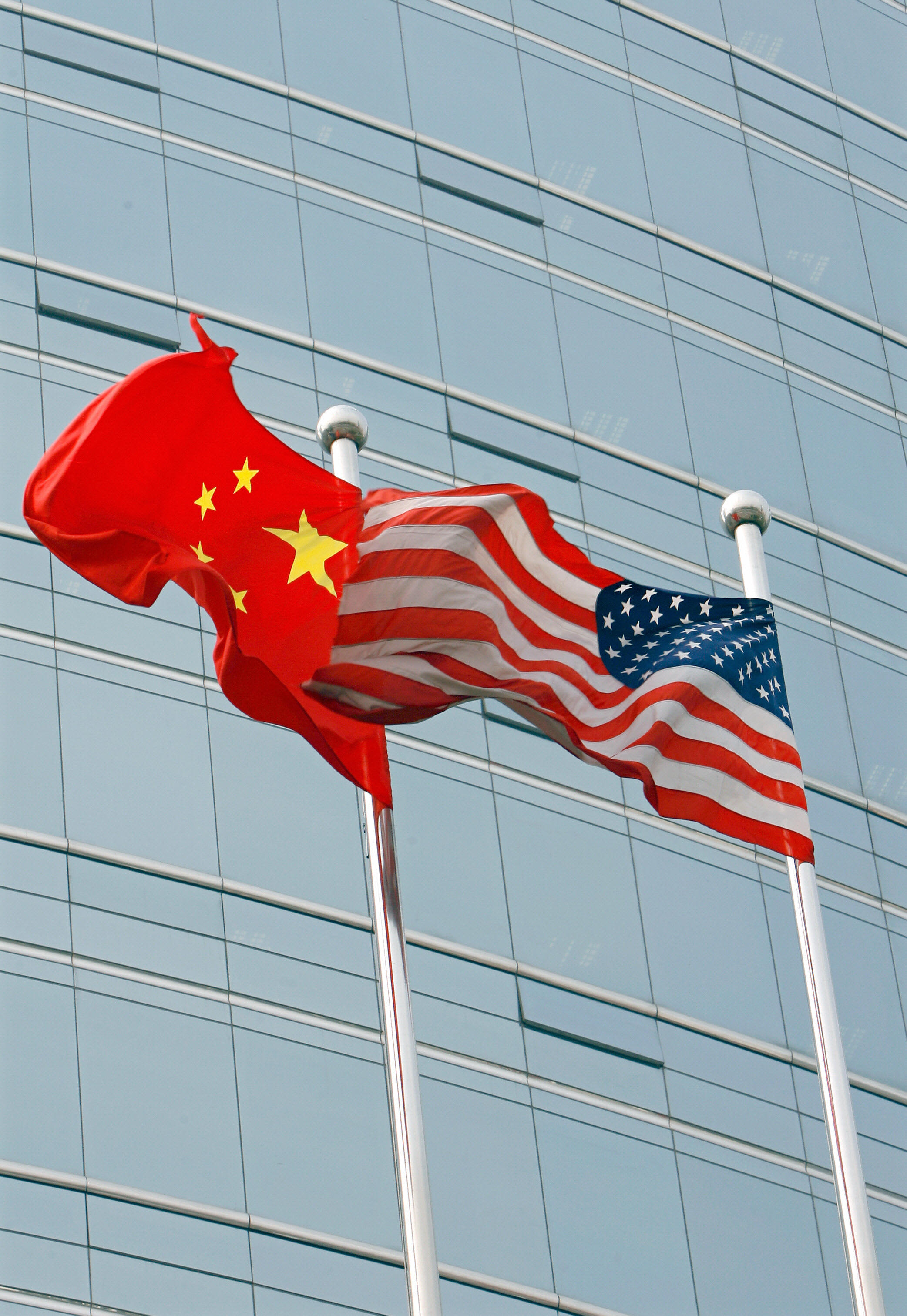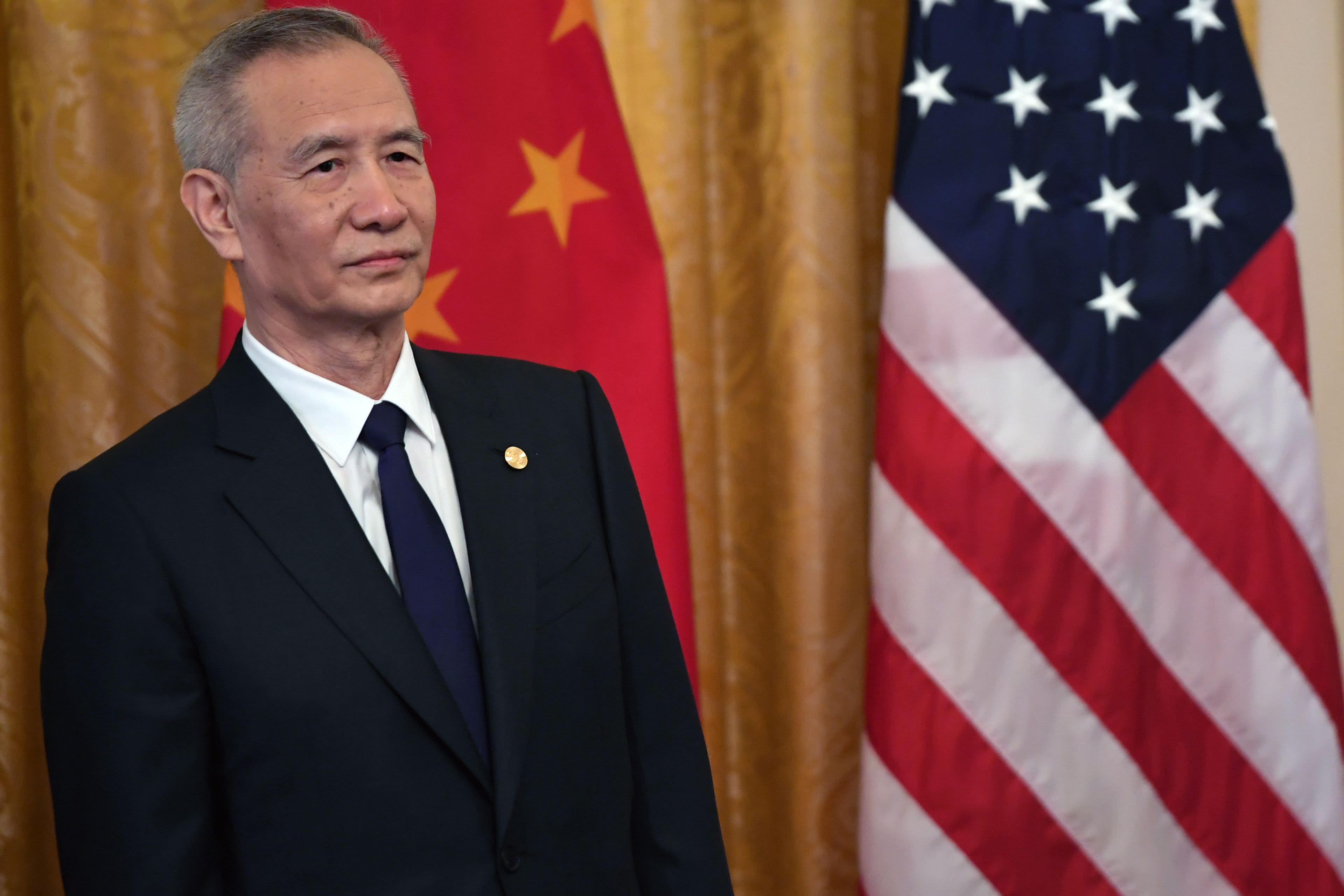
The head of the FBI and the leader of Britain’s domestic intelligence agency raised fresh alarms Wednesday about the Chinese government, warning business leaders that Beijing is determined to steal their technology for competitive gain.
FBI Director Christopher Wray reaffirmed longstanding concerns in denouncing economic espionage and hacking operations by China as well as the Chinese government’s efforts to stifle dissent abroad. But his speech was notable because it took place at MI5’s London headquarters and alongside the agency’s director general, Ken McCallum, in an intended show of Western solidarity.
The remarks also showed the extent to which Wray and the FBI regard the Chinese government as not only a law enforcement and intelligence challenge, but are also attuned to the implications of Beijing's foreign policy actions.
“We consistently see that it’s the Chinese government that poses the biggest long-term threat to our economic and national security, and by ‘our,’ I mean both of our nations, along with our allies in Europe and elsewhere,” Wray said.
Get Connecticut local news, weather forecasts and entertainment stories to your inbox. Sign up for NBC Connecticut newsletters.
McCallum said the Chinese government and its “covert pressure across the globe” amounts to “the most game-changing challenge we face.”
“This might feel abstract. But it’s real and it’s pressing,” he said. “We need to talk about it. We need to act.”
A spokesman for the Chinese embassy in Washington, Liu Pengyu, rejected the allegations from the Western leaders, saying in an emailed statement to The Associated Press that China “firmly opposes and combats all forms of cyber attacks” and calling the accusations groundless.
“We will never encourage, support or condone cyber attacks,” the statement said.
In a nod to current tensions between China and Taiwan, Wray also said during his speech that any forcible takeover of Taipei by Beijing would “would represent one of the most horrific business disruptions the world has ever seen."
Last week, the U.S. government’s director of national intelligence, Avril Haines, said at an event in Washington that there were no indications Chinese President Xi Jinping was poised to take Taiwan by military force. But she that did say Xi appeared to be “pursuing the potential” for such an action as part of a broader Chinese government goal of reunification of Taiwan.
US-China Relations
After the appearance with his British counterpart, Wray said that he would leave to others the question of whether an invasion of Taiwan was more or less likely after Russia's invasion of neighboring Ukraine. But, he said, “I don’t have any reason to think their interest in Taiwan has abated in any fashion" and added that he hoped China had learned what happens “when you overplay your hand,” as he said the Russians have done in Ukraine.
The FBI director said there are signs the Chinese, perhaps drawing lessons from Russia’s experience since the war, have looked for ways to “insulate their economy” against potential sanctions.
“In our world, we call that behavior a clue,” said Wray, who throughout his speech urged caution from Western companies looking to do business in or with China. He said Western investments in China could collapse in the event of an invasion of Taiwan.
“Just as in Russia, Western investments built over years could become hostages, capital stranded (and) supply chains and relationships disrupted,” he said.
President Joe Biden said in May that the U.S. would respond militarily if China invaded Taiwan, offering one of the most forceful White House statements in support of Taiwan’s self-governing in decades. The White House later tried to soften the impact of the statement, saying Biden was not outlining a change in U.S. policy toward Taiwan, a self-governing island that China views as a breakaway province that should be reunified with the mainland.
The embassy spokesman said the Taiwan issue was “purely China’s internal affair” and said when it comes to questions of China’s territory and sovereignty, the country has "no room for compromise or concession.”
“We will strive for the prospect of peaceful reunification with utmost sincerity and efforts,” the statement said, though it noted that China will “reserve the option of taking all necessary measures in response to the interference of foreign forces.”



